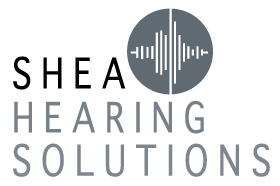Misconceptions about hearing loss

Approximately 48 million Americans have some degree of hearing loss, according to the Hearing Loss Association of America. In this post, we will go over some of the top misconceptions about hearing loss.
Hearing Loss Misconception #1: Everybody with hearing loss reads lips and uses sign language
Since hearing loss spans across such a broad spectrum from mild to completely deaf, not every person with hearing loss communicates the same way. How a person with hearing loss communicates depends on a number of factors, including:
- Whether they use a hearing aid or cochlear implant
- At what age the person lost their hearing
- The level of auditory training they have received
- The nature of each specific listening situation
Most people with hearing loss actually do not use sign language. But, for those who do, sign language is extremely important for communication. Some people with hearing loss read lips, but not everybody does. Lip reading is beneficial to supplement residual hearing. Many people with hearing loss can pick up visual clues even if they are not proficient at lipreading.
Hearing Loss Misconception #2: Hearing Aids and Cochlear Implants Fully Restore Hearing
Cochlear implants and hearing aids are amazing innovations that allow people with hearing loss to recoup some of their hearing, but these devices do not restore levels to “normal.”
Hearing aids increase the volume of what people hear, but they only slightly enhance the clarity by raising the volume in certain frequencies.
The improvements that cochlear implants make on hearing varies pretty drastically on a case-by-case basis. For example, improvements range from providing near-normal hearing to only gaining an awareness of environmental sounds with no comprehension of what they mean. These results vary based on the person’s hearing history, length and offset of deafness, their age, and the device’s implantation.
Hearing Loss Misconception #3 Hearing Loss Mostly Affects Older People
False. According to the Hearing Health Foundation, of the 48 million Americans with hearing loss, only one-third are 65 and older.
Hearing Loss Misconception #4: When Someone with Hearing Loss Misses Something, it’s OK to Tell Them Not to Worry About it, Or You’ll Tell Them Later
As you can imagine, it’s extremely frustrating for people with hearing loss not to have something repeated when they miss a piece of a conversation. The person with hearing loss should have the option, just like the person without, to decide for themselves whether the piece of the conversation was important. So, take the time to always repeat anything people with hearing loss may have missed.
Hearing Loss Misconception #5: Talking Louder to Someone with Hearing Loss Will Help them Understand
Increasing the volume is only part of the solution; clarity is also essential. There also comes the point when increasing the volume will actually distort the sound quality. To ensure sufficient clarity, people with residual hearing may need sound to be transmitted via a microphone directly to their ear with an assistive listening system. Sitting closer to the speaker can also help the listener if they are able to read lips, but it is not a substitute for an assisted listening device. Yelling or over-articulating will not help either because these distort the natural speech rhythm and make lip reading much harder.
Hearing Loss Misconception #6: People with Hearing Loss Who Need an Assistive Listening System Can Use Headphones
Today’s style of earbud headphones requires people with hearing aids to remove them. Headset style headphones also don’t generally work for people who wear behind-the-ear hearing aids. They also don’t work well for people with more than mild hearing loss because the sound output is not loud enough.
People with cochlear implants or T-coils in their hearing aids are able to receive signals directly through their hearing aid or cochlear implant when an induction loop is used. They can also access FM or infrared signals directly to the hearing aid using a neck loop receiver or an attachment.
For all of your hearing needs in Memphis, contact Shea Hearing Solutions of Memphis. The clinic’s missions are to provide excellence in hearing healthcare, using only the most advanced diagnostic testing equipment.


